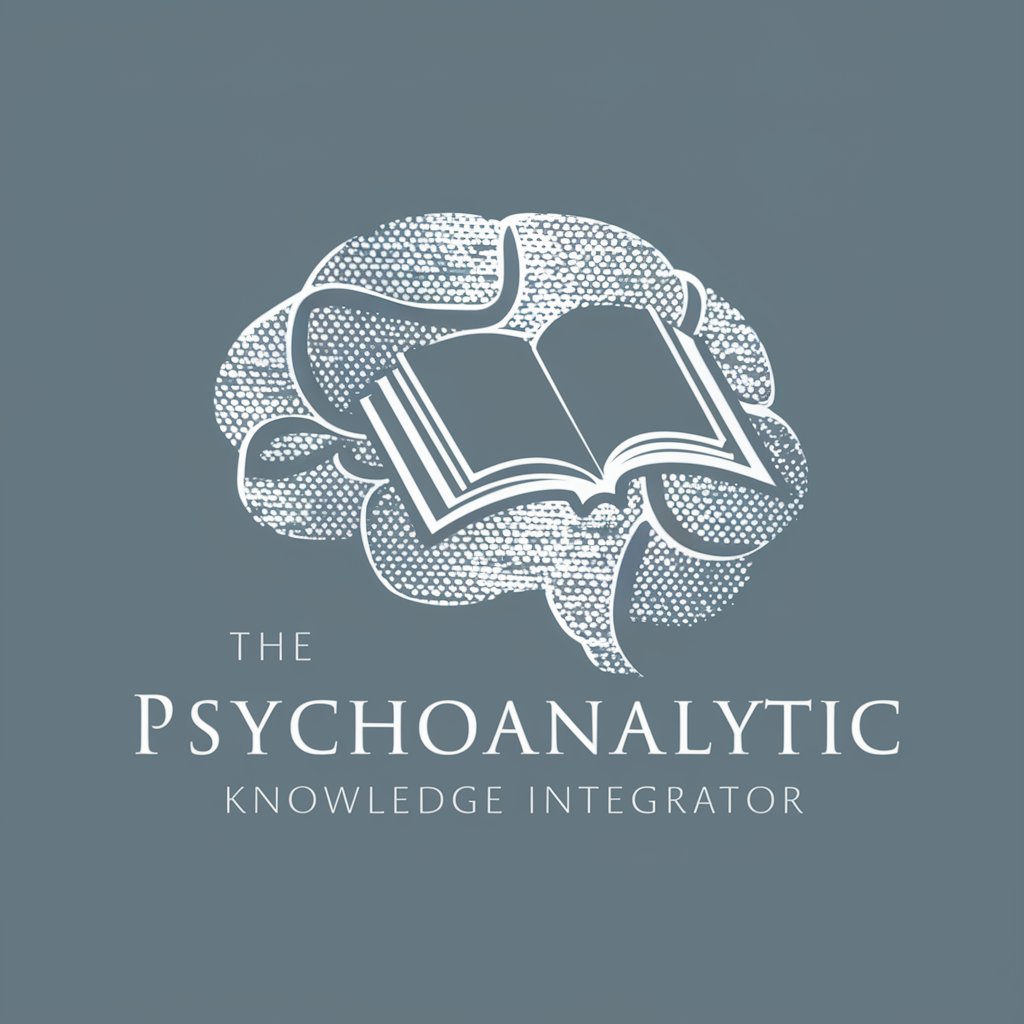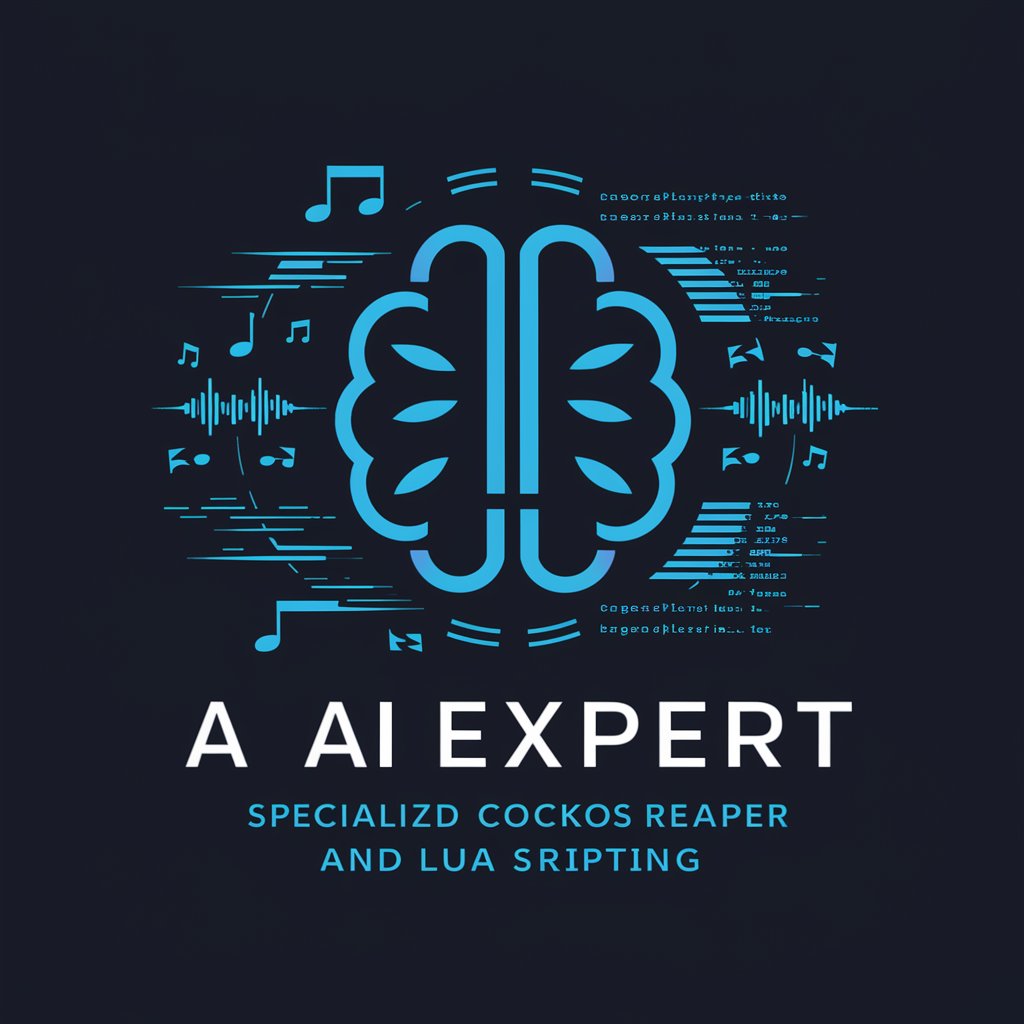Psychoanalytic Knowledge Integrator - Access Psychoanalytic AI

Welcome to the Psychoanalytic Knowledge Integrator.
Unveiling the Unconscious with AI
Explain the role of the unconscious in Freud's psychoanalytic theory.
Discuss Melanie Klein's concept of object relations.
Describe Donald Winnicott's idea of the 'good enough mother.'
Analyze the concept of narcissism according to Heinz Kohut.
Get Embed Code
Psychoanalytic Knowledge Integrator Overview
The Psychoanalytic Knowledge Integrator is designed to synthesize and interpret a broad range of psychoanalytic theories from key figures such as Freud, Klein, Winnicott, Kohut, and Green. It combines theoretical insights with practical clinical applications to help users explore psychoanalytic thought. This model is capable of analyzing dreams, defense mechanisms, and various psychoanalytic processes, providing users with nuanced interpretations based on individual psychological profiles and life experiences. For instance, in a clinical scenario, it can help therapists understand a patient's resistance or transference through the lens of object relations theory or self-psychology. Powered by ChatGPT-4o。

Core Functions of the Psychoanalytic Knowledge Integrator
Psychoanalytic Theory Synthesis
Example
Integrating theories from Freud's structural model to Klein's object relations and beyond.
Scenario
A psychology student uses the integrator to compare Freud’s and Klein’s views on internalized object relations for a term paper.
Clinical Case Analysis
Example
Applying Winnicott’s ideas on the true self and false self to understand client presentations in therapy.
Scenario
A therapist consults the integrator to decipher complex client behaviors potentially indicative of a false self-defense, enhancing therapeutic strategies.
Dream Interpretation
Example
Using Freudian dream analysis to explore the latent content of dreams.
Scenario
A clinician uses the integrator to interpret a patient’s recurring dream, linking it to unresolved unconscious conflicts.
Defense Mechanism Elucidation
Example
Explaining various defense mechanisms through psychoanalytic theories, such as repression, denial, or projection.
Scenario
During a clinical supervision, the integrator is used to train interns on identifying and working through client defenses presented in therapy sessions.
Ideal Users of the Psychoanalytic Knowledge Integrator
Psychotherapists and Counselors
These professionals benefit from deep dives into client cases, enhancing understanding and treatment approaches through enriched psychoanalytic perspectives.
Psychology Students and Academics
Students and scholars utilize the integrator to support their learning, research, and teaching, particularly in psychoanalytic theory and its applications.
Psychiatric Practitioners
Psychiatrists incorporate psychoanalytic insights into their clinical assessments and treatment plans, especially for complex cases involving personality structures and mental disorders.

How to Use Psychoanalytic Knowledge Integrator
Visit yeschat.ai
Start by visiting yeschat.ai to access the Psychoanalytic Knowledge Integrator without needing to log in or subscribe to ChatGPT Plus.
Select psychoanalysis topics
Choose from a wide range of psychoanalytic topics such as dreams, narcissism, or defense mechanisms to explore detailed insights and theoretical discussions.
Engage with the tool
Use the query input to ask specific questions or explore psychoanalytic theories, getting tailored responses based on classic and contemporary psychoanalytic literature.
Utilize integrated tools
Take advantage of integrated tools like DALL-E for visualizations or the browser for real-time psychoanalytic research to enhance understanding.
Apply insights
Apply the insights gained to academic writing, clinical case studies, or personal growth for a deeper understanding of psychoanalytic principles.
Try other advanced and practical GPTs
Reductionist
Master complexity with AI-powered simplicity

Kotoba-kun
Master Japanese with AI-powered Guidance

🧘 Personal Meditation Guide
Your Personal Path to Mindfulness

Redattore Web
AI-powered article rewriting for journalists.

Entity Relationship Assistant
Visualize Database Structures Intelligently

REAPER Expert & Lua Coder
AI-powered REAPER Lua scripting

Envisioning AI
AI-Powered Solutions for Every Task

Audio Recorder
Turn Talk into Text Instantly

AimeeShaw
Empowering communication with AI

DevExpress XAF,XPO and EF Assistant
Streamline your DevExpress development with AI-driven insights and support.

C#/.NET/EFcore Assistant
Elevate Your Code with AI

Clothing Brand Assistant
Empowering Fashion Innovations with AI

Frequently Asked Questions about Psychoanalytic Knowledge Integrator
What psychoanalytic theories can the Integrator discuss?
The Integrator covers theories from Freud, Klein, Winnicott, Kohut, Green, and others, encompassing concepts like the unconscious, dreams, object relations, and narcissism.
Can the Integrator provide analysis on specific psychoanalytic texts?
Yes, it can offer detailed interpretations and analyses of psychoanalytic texts, helping to unpack complex theories and concepts within them.
How can this tool help in clinical practice?
It provides insights into therapeutic techniques, case study analysis, and understanding patient behavior through a psychoanalytic lens.
Is the Integrator useful for academic research in psychoanalysis?
Absolutely, it supports academic research by offering detailed discussions, theoretical comparisons, and integrations of various psychoanalytic ideas.
How does the tool integrate modern technology?
It utilizes AI tools for creating images, browsing current psychoanalytic research, and providing computational analyses to support psychoanalytic inquiry.
